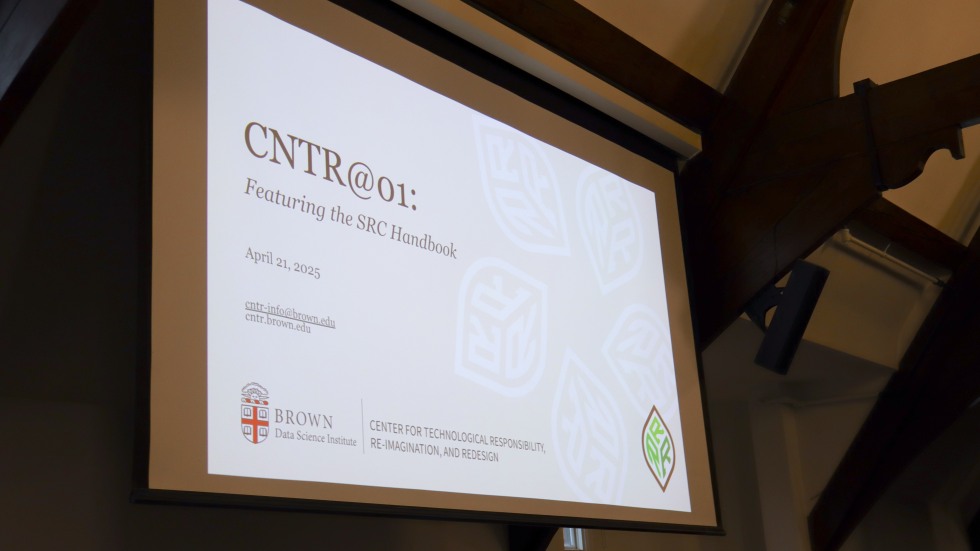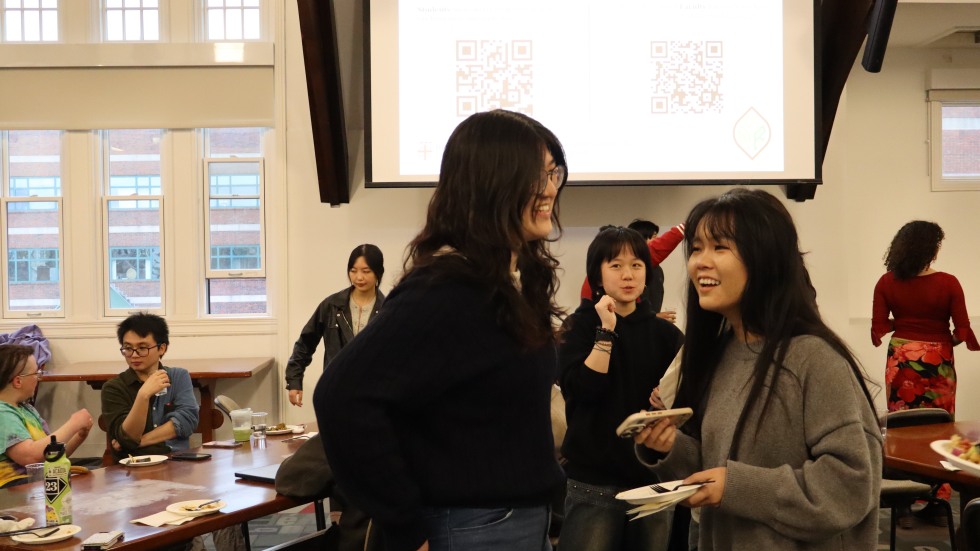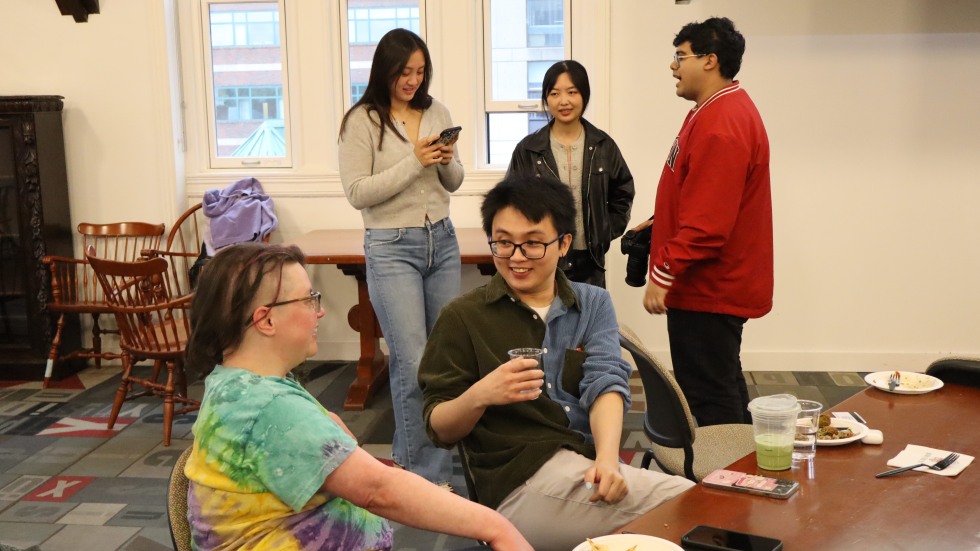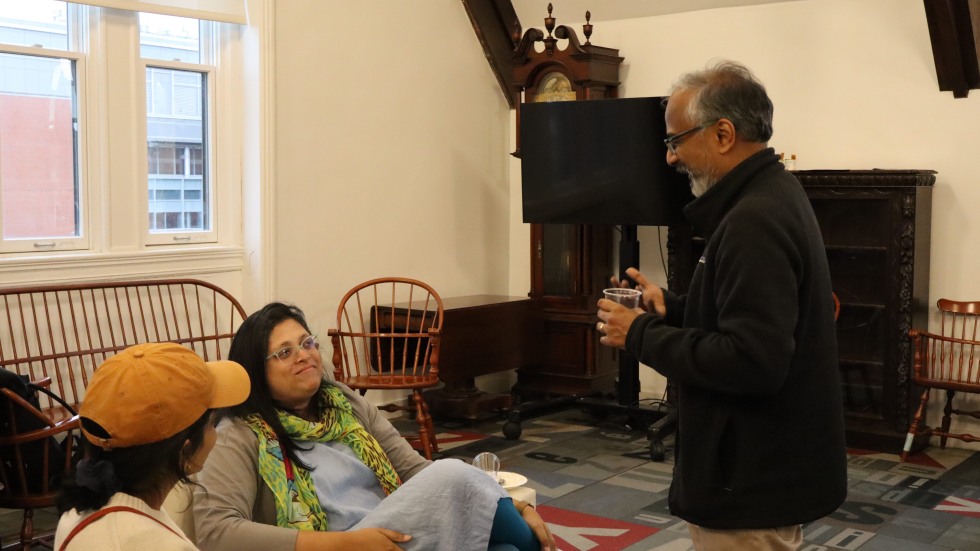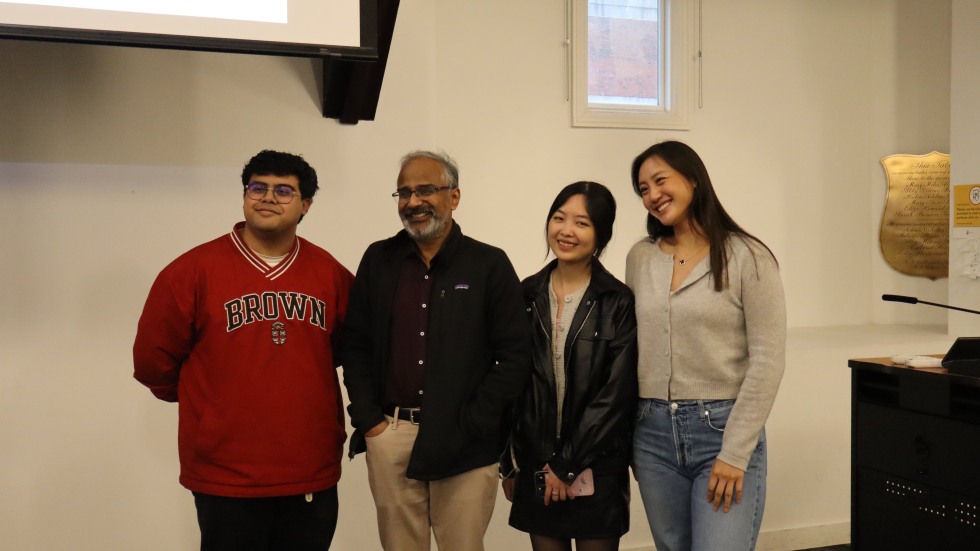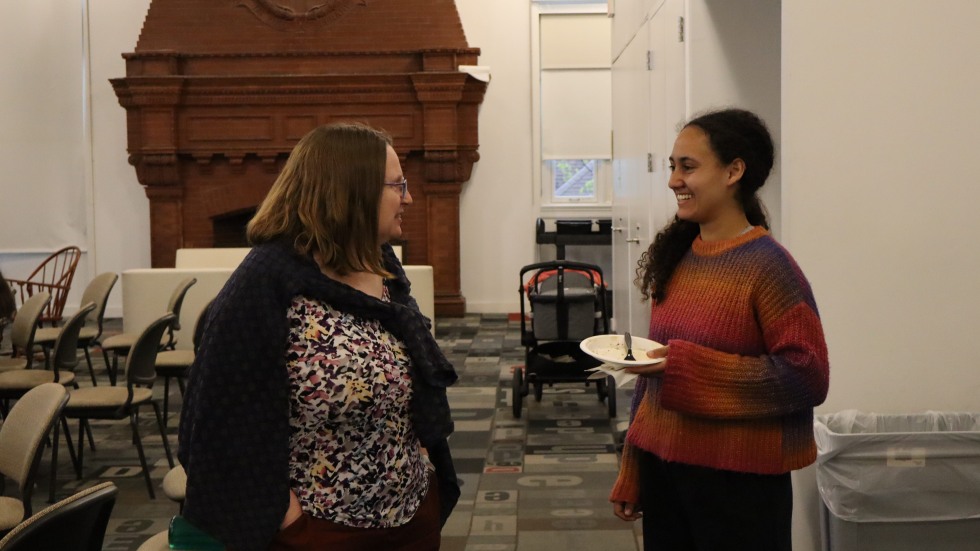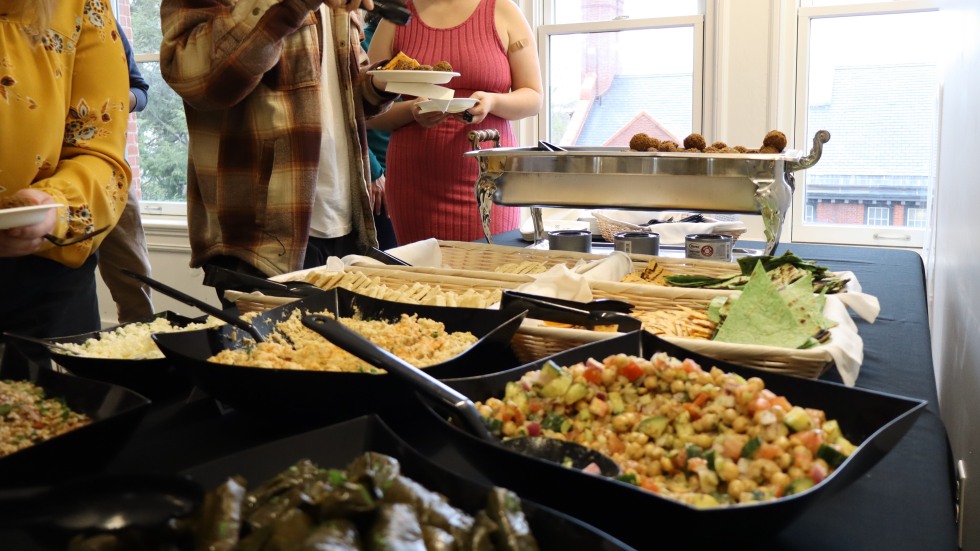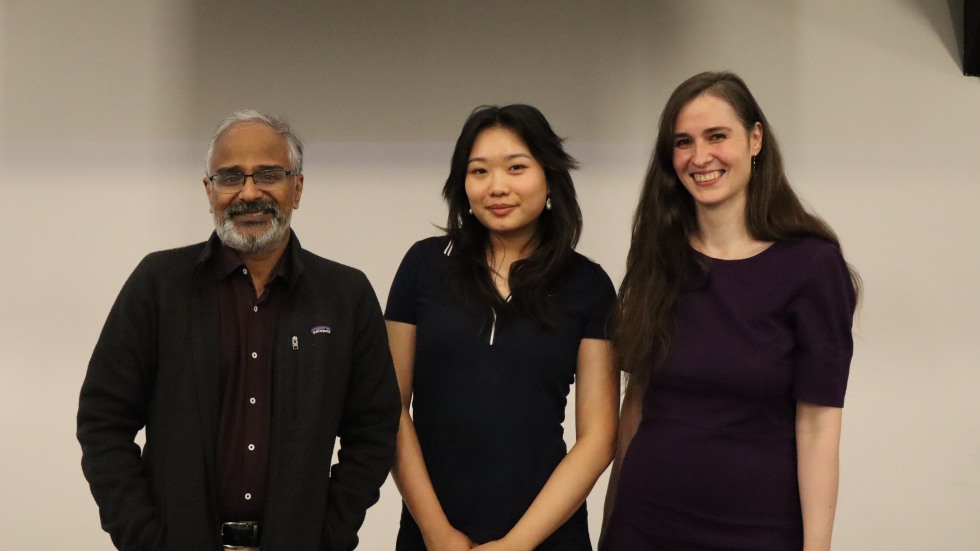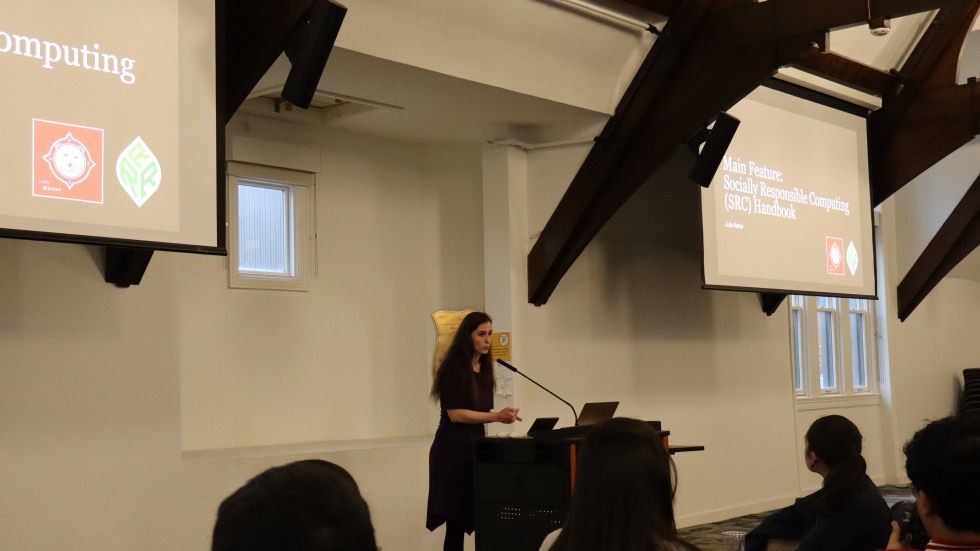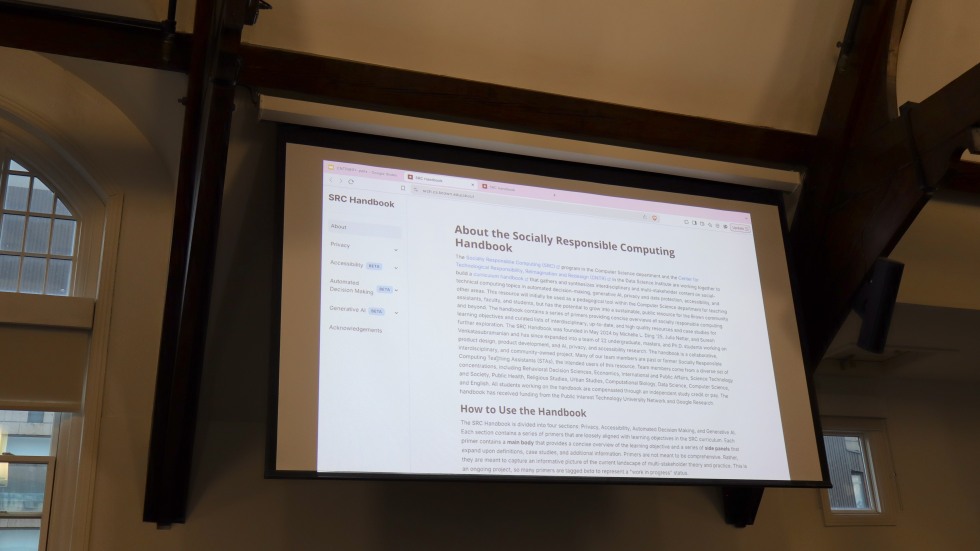The atmosphere inside of the vaulted-ceiling space on the top floor of Pembroke Hall on Monday evening was buzzing with chatter and excitement as the Center for Technological Responsibility, Re-imagination, and Redesign (CNTR) gathered to celebrate its first anniversary.
More than 50 new and familiar faces of students, faculty, and staff showed up on the cloudy spring evening to engage with this community of scholars who are passionate about reimagining how we can use technology in fair and responsible ways to better serve the needs of all.
Kicking off the “CNTR@01” event, CNTR Director and Professor of Data Science and Computer Science Suresh Venkatasubramanian addressed the crowd and chronicled what the CNTR has been up to in its first year of existence at Brown.
